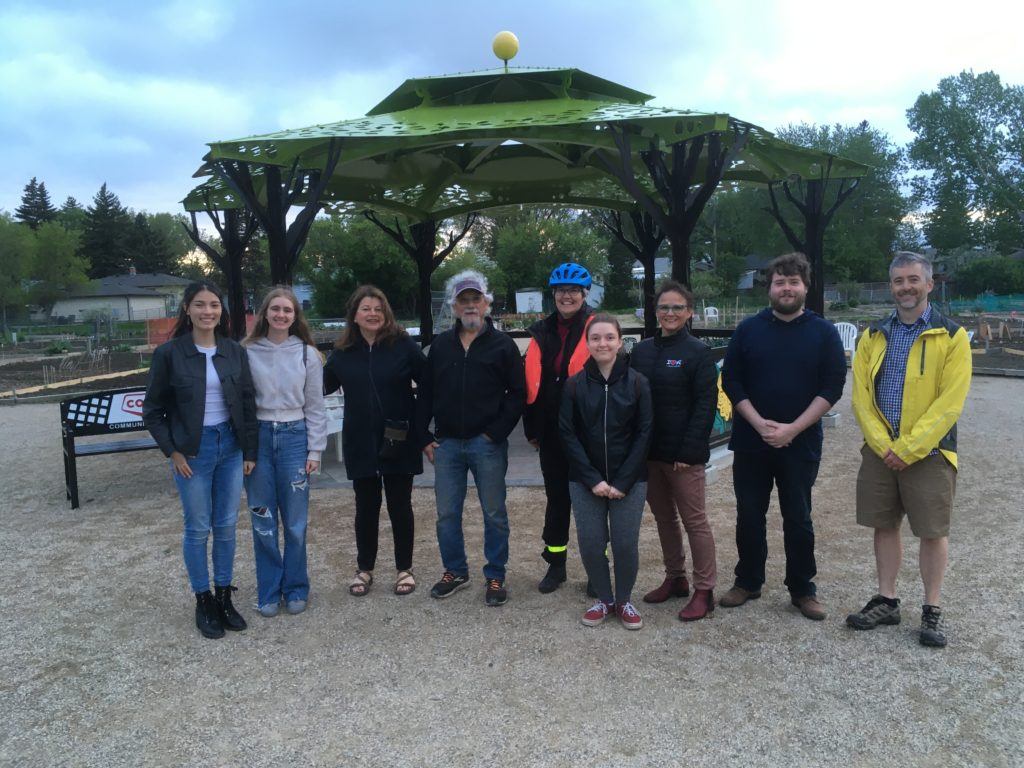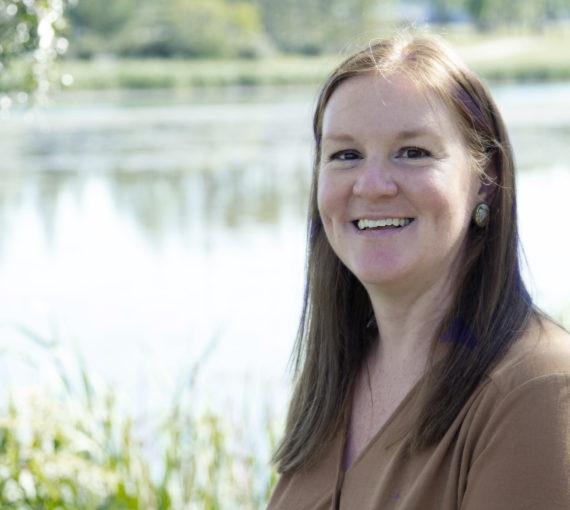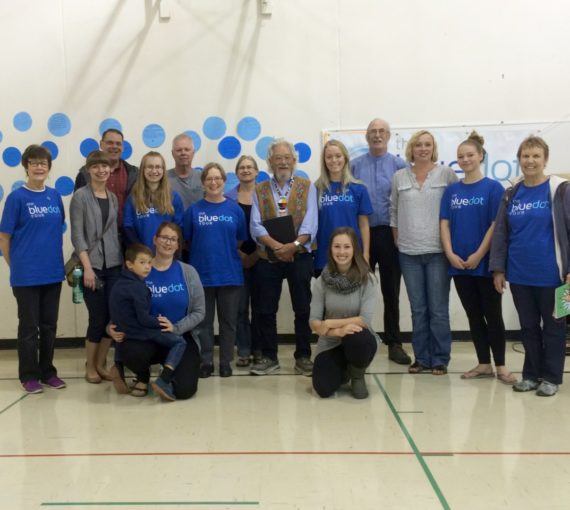
Sophia Young (far left) and members of Regina Energy Transition meet David Suzuki and Tara Cullis (Photo: Ian Mauro)
Regina is located on the traditional lands of the Treaty 4 Territory, a treaty signed with 35 First Nations across Southern Saskatchewan and parts of Alberta and Manitoba, and the original lands of the Cree, Salteaux, Dakota, Nakota and Lakota, and the homeland of the Métis Nation.
Earlier this year, the City of Regina achieved a milestone that was four years in the making: city council unanimously passed an energy and sustainability framework, setting the city on a path to halve its emissions by 2030 and reach net zero by 2050.
Any city would celebrate such an achievement, but for a city on the Prairies, where climate change has long been a topic to sidestep, it’s a particular triumph.
“To have [Saskatchewan’s] capital city create such an ambitious yet realistic plan and get so much community support behind it is wonderful,” says Sophia Young, who co-chairs the Regina Energy Transition, a community environmental advocacy group that has worked with city council to ensure the framework is ambitious and equitable. “It’s inspiring because it shows that no matter where you are, there are people who want to help. They want to build a better community. They want a better quality of life.”
It’s inspiring because it shows that no matter where you are, there are people who want to help. They want to build a better community. They want a better quality of life.
The framework’s path to completion wasn’t exactly smooth. In October 2018, council voted unanimously to make Regina 100 per cent renewable by 2050, but when the city released an outline for the framework to achieve that goal, local climate advocates were dismayed. The outline, they said, did not reflect the original spirit of the “Renewable Regina” motion and would not make the city 100 per cent renewable.
When the city released a second outline that was just as disappointing, climate advocates once again expressed disappointment. Many of them, including members of Regina Energy Transition, brought their concerns to council, and in October 2020, city staff presented yet another outline. This time, advocates and council approved it.
Regina’s energy and sustainability framework, which the David Suzuki Foundation helped develop, includes a suite of “big moves” — emissions-reduction strategies that target the sectors that emit the most. These range from retrofitting existing buildings and ensuring net-zero emissions in new construction to increasing active transportation and transit use.
That last strategy is of particular importance to Regina Energy Transition. In a recently released transit master plan, city administration promised fare-free transit to youth aged 13 and under, but the group wants to see the city offer fare-free transit to all residents under 18.
At 17 years old, Sophia Young is passionate about fare-free transit and has been rallying the city’s youth to support it. She explains that many Regina residents can’t afford a monthly bus pass, which currently costs $64 for youth and $88 for adults. “It’s really sad when kids can’t go to school because they can’t afford the bus,” she says.
“When you support things like fare-free transit, you get kids to school and they get educated. And we know that when kids are educated, it lowers the rate of crime and helps bring more wealth and growth to the community.”
When you support things like fare-free transit, you get kids to school and they get educated. And we know that when kids are educated, it lowers the rate of crime and helps bring more wealth and growth to the community.
Young and her peers have spent many hours talking to residents about transit and collecting petition signatures. They’re hopeful that this summer the city will amend its plan to include fare-free transit for everyone under 18.
In general, Young is pleased with how equity and justice show up in the framework, which includes calls for expanded transit services and development of an extensive active transportation system, as well as deep energy retrofits for buildings. Recently, the city launched a residential housing retrofit affordability program that offers matching funds of up to $5,000 for eligible home retrofit work.
The city also projects that the framework’s actions could result in $12.5 billion in financial returns by 2050, as well as an average net growth of more than 4,000 jobs per year.
In the months ahead, Young and other members of the Regina Energy Transition will be keeping a close eye on the city’s budget, making sure the actions in the framework receive proper funding. As Young says, “You can approve a plan, but if no one puts money toward it, it’s all meaningless.”
She and her colleagues are looking forward to the next steps along Regina’s path to net zero. “Regina Energy Transition wants to be there to support the city and make sure these plans get done. Ultimately, we want to build a better Regina.”



